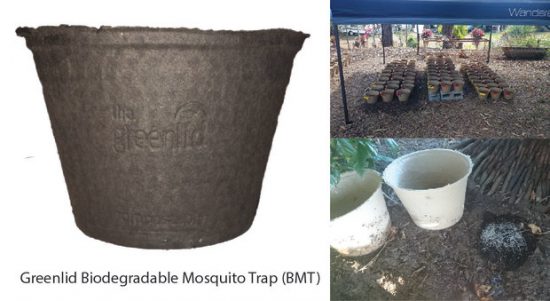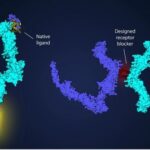August 13, 2016 – The latest infection count in Miami is 25 confirmed cases of mosquito-spread Zika virus. That’s not a big number but it will grow as the summer continues.
Mosquitoes, of all insects, represent our greatest disease threat. Whether Malaria, Dengue, Yellow fever, Chikungunya, West Nile or Zika, these diseases cause hundreds of millions to fall ill and lead to death for several million every year.
Malaria is endemic in 91 countries and as global warming changes the range of the mosquitoes responsible for its spread, will grow to be an even greater threat in the 21st century.
Dengue risks one-third of the planet today and causes 20 million cases annually with 6,000 turning into the more serious haemorrhagic fever.
And now Zika, is the new threat to both pregnant mothers and their fetuses, linked to microcephaly in newborns and outbreaks of Guillain-Barre Syndrome in adults.
Most people believe an open water source is the typical breeding ground for mosquitoes. But in the case of Zika, it’s the urban left over water in open rain barrels, pails, pot, and old tires with small amounts of dirty water that presents the ideal breeding ground for Aedes aegypti, the Zika, Dengue, and Chikungunya deliverer.
And now another invasive mosquito newcomer in North America, Aedes albopictus, may become a co-host and spreader of these viral threats. These are two mosquito species that bite in daylight when most of us are out and about and not the ones that get you by the campfire or on the dock of your cottage in the evening.
So how can you protect yourself over and above covering up or applying DEET (diethyltoluamide), the king of mosquito repellants?
A new Indiegogo campaign features a product developed by Toronto-based Greenlid Envirosciences. It’s a biodegradable biological trap designed for deployment anywhere mosquitoes can be found. It’s ideal for use in backyard gardens and in urban locales. It goes by the name BioTraps.
BioTraps is a container made a compostable, biodegradable paper material containing a sufficient amount of pyrethroid insecticide and larvicide to kill mosquitoes. The BioTraps are designed to be good holders of rainwater and grey water (the dirtier the better). Traps are placed between 3 and 6 meters (10 to 20 feet) apart throughout your garden. Ideally they should be placed in shady and wind-protected areas, away from your children and pets although the insecticide and larvicide in each container is low dose.
When a female mosquito lands on a BioTrap she is killed. And the larvicide takes care of the eggs when hatched. The traps are low cost and disintegrate in 4 to 6 weeks. With mosquito season extending for longer periods of time in temperate climates you need to replace BioTraps several times through a summer biting season.
Greenlid has built a global distribution network for its product and the Australian state of Queensland is buying BioTraps to combat Dengue fever outbreaks. So far the Indiegogo site has raised 40% of the $50,000 campaign goal with 20 days left to go. The money the company receives from the campaign will help it to offset shipping and production costs.
A pledge of $25 U.S. gets you 5 BioTraps for next summer’s mosquito season. A pledge of $10 lets the company deliver 5 BioTraps to communities in the Developing World where mosquito-borne diseases are endemic. For $50 gets you receive 15 BioTraps, about a 3-month supply for a small yard, and Greenlid donates 15 BioTraps to communities in need. A $100 pledge gets you 75 BioTraps with 50 donated by Greenlid with the logistics handled by its charitable partners.
For those more generous who want to become an acknowledged sponsor, you have a range of pledge choices starting at $1,500 and increasing to $5,000. These pledges will allow the company to donate enough BioTraps to protect communities in areas susceptible to mosquito-borne disease.
The sponsored product will begin shipping next month in time to help countries in the Southern Hemisphere as their summer approaches. For home orders to North American pledges and purchases expect to receive your BioTraps starting in March 2017.
Greenlid Envirosciences is also the developer of Greenlid, a 100% recyclable container for home composting. The product was featured in an episode of The Dragon’s Den, the Canadian program that is the inspiration for ABC’s Shark Tank.












